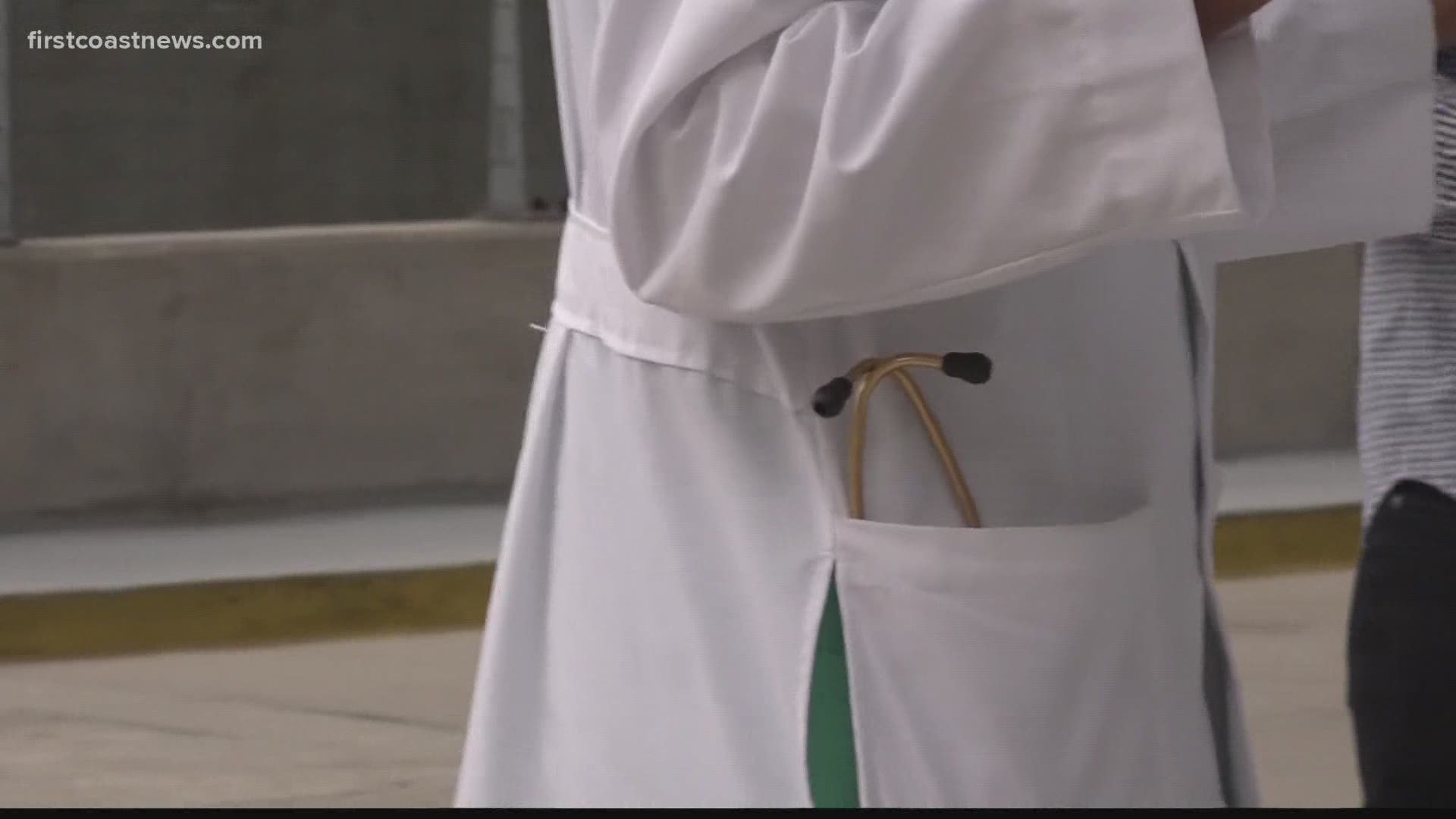The celebrations when COVID-19 patients get to leave the hospital and go home, the smiles on the faces of the patients and the health care heroes, they’re the stories everyone wants to see.
But, there’s not always that happy ending.
“I think one of the worst memories I have had to go through is losing people that shouldn’t have lost this battle,” Callie Parry, a nurse practitioner with pulmonary critical care at Baptist Health, said. “That’s hard to shut the door on when you leave work and come home and pretend like that didn’t happen."
Who takes care of those health care heroes when they gave everything to save someone and it wasn’t enough?
“People have to take care of themselves before they can take care of someone else, and we want to make sure all of our team members have the support and resources coping tools in their toolbox, so to speak, to make sure that they’re ok and that they have the support to care for the patients,” Terrie Andrews, System Administrator for Baptist Behavioral Health, said.
Baptist Health, and several hospitals on the First Coast, have employee assistance programs for mental health, like 24/7 crisis hotlines, and support groups.
“We’re not in this for any other reason than to want to help people, so I think when you can’t do what you were born to do and help people and everything inside of you is saying, ‘I can’t do what I need to do,’ some part of that wears on you,” Parry said.
Parry has seen COVID-19’s wrath firsthand, working in COVID units.
“It’s a challenging world to work in when you see so much negative and it moves so fast you don’t feel like you have the chance to take it all in,” she said. “You’re already fighting a virus we don’t know enough about, but then the resources that you do know, they aren’t helping in every patient. They do help sometimes, but then they don’t apply to the next patient and so there’s something to that mentally that wears on people when you think you’ve got a successful route and then you try it on the next patient and it does the exact opposite."
Parry said she relies on her faith, Baptist’s chaplain and her team as support. Baptist’s staff also offers health care workers Zoom chats about certain topics like stress, and what they call “rest and revive tents” throughout the day. The tents are full of snacks, letters of support from the community and the opportunity to talk to psychologists and the chaplain.
“We pray together. We share our experiences. We cry together. We’re there for each other, and that’s a big deal,” Parry said.
If you or someone you know in the health field needs to talk to someone, there’s also a national physician support line that’s free and confidential. You can call 1-888-409-0141.

